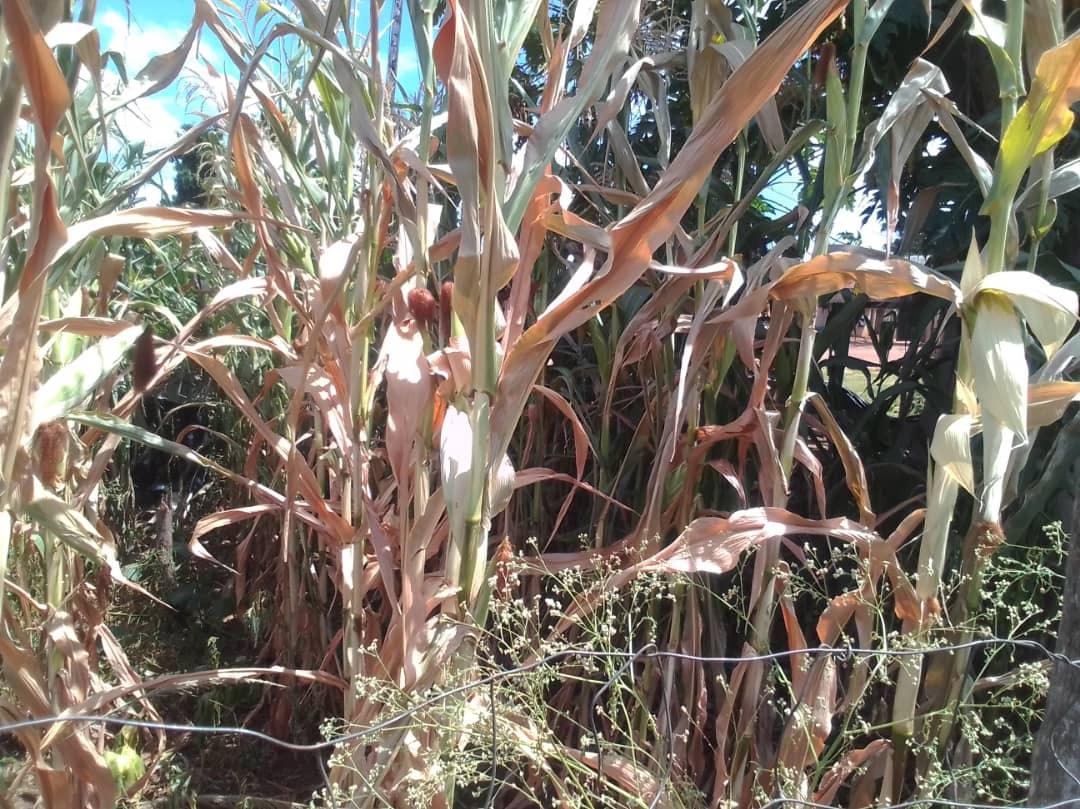
By Khulile Thwala
The effects of climate change are starting to rear their ugly head as the Ministry of Agriculture has projected a potentially huge loss for farmers due to the extreme weather conditions being experienced lately.
According to Director of Agriculture Nelson Mavuso, the country was currently experiencing a short-term drought caused by a precipitation deficit which has lasted for a couple of weeks owing to the heatwave. Speaking to the Eswatini Financial Times, Mavuso said maize crops planted as early as October were not likely to survive this season, especially if they have already sprouted.
“The situation is dire and at this point, all we can do is wait for it to subside and for a change in weather patterns, but the heatwave has already resulted in insurmountable loss throughout the country and not just the Lowveld, where it is far worse,” said Mavuso.
According to the director, eight designated areas in the country; namely Herefords, Mkhuzweni, Nkamanzi, Nyakatfo, Mavula/Matibe, Mhlangatane and Ndlalambi had experienced about 355 hectares of loss in total.
“The area with planted maize crops is about 1 000 hectares, of which more than 355 hectares is likely to be written off.”
Information gathered by this publication indicates that most maize crops were dying while at tasselling and cobbing phase, while some were nearing the critical stage although there was still hope warranted by good soils with good water holding capacity.
“Maize crops which are likely to survive are drought tolerant crops and crops that are mid-size and have not fully sprouted, however, lack of moisture is destroying the sprouted maize and maize farmers who had planted crops earlier and were hoping for a good harvest will have to write off their crops if they are not drought tolerant,” he says.
“All that can be done now is to wait for the situation to subside. Now we are in the vicinity of the problem and what we had been saying with regard to climate change was for farmers to irrigate or water crops instead of awaiting rainfall, however, the heatwave is causing the water temperatures not to be conducive for the plants as the plants now require the water to cool off instead of retaining it for growth and nutrients,” said Mavuso.
He said the water is now simply a conduit or air conditioner, and the continued heat is removing moisture from the soil, the plant will reach a stage where there is permanent wilting. “As the plant is trying to protect itself from losing more water it reaches a stage of extreme wilting which rainfall might not help recover.”
The Director of Agriculture said they were lamenting the situation farmers were facing, especially where the maize was at a critical stage where it requires a lot of moisture due to it being at the flowering stage, cobbing.
“Mid-height maize is more likely to survive now and not below that as the root depth will be even lower. The extreme rainfall also discourages root penetration because the roots will not elongate as the water or moisture is nearer, therefore if it rained more at the beginning of the growth process that maize suffered more even if it is drought tolerant,” said Mavuso.
Prolonged drought results in depletion of soil moisture, killing the cells and the crop eventually dying. Climate change has resulted in the unpredictability of rainfall, extreme temperatures, and hailstorms, which have been witnessed lately.
Mitigation measures include farmers planting drought-tolerant crops. The other maize crop that will survive will stop growing during the long season until the drought subsides or passes. Maize classified as deep-rooted and drought-tolerant will survive. Mavuso said it is still early days to predict what this meant for this year’s harvest as that will be analysed mid-farming season.






